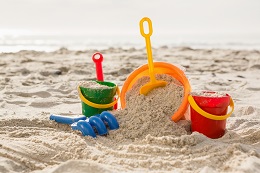Heat-Related Emergencies: Staying Cool and Hydrated in Canadian Summers

Image by awesomecontent on Freepik
Heat-related emergencies occur when the body becomes dehydrated, which may result in an increased body temperature. Heat cramps, heat exhaustion, or heat stroke, can happen to anyone who stays in the summer heat and sun for too long.
Young children, the elderly, those with chronic illnesses such as heart disease, and those taking certain medications can become ill in hot, humid weather faster than healthy adults.
It is important for everyone enjoying the outdoors to know how to prevent heat emergencies, recognize when someone has been in the heat for too long, and be able to provide help when needed.
Signs and symptoms of heat-related emergencies
| Heat Exhaustion | Heat Stroke | |
| Skin |
|
|
| Physical |
|
|
| Mental |
|
|
| Breathing |
|
|
The signs and symptoms listed in bold in the table above are the most serious. Call EMS/9-1-1 immediately if any of these are present. Otherwise, provide care and monitor the person closely.
How to Help
When you’re hot you sweat more than normal, so you need to drink more to replace the water your body is losing. Drink plenty of cool fluids, even if you do not feel thirsty, but avoid caffeine and alcohol. They can cause dehydration, which stops your body from controlling its temperature properly.
| Heat Exhaustion | Heat Stroke |
ACTIVE COOLING
If person is alert, provide cool drink |
AGGRESSIVE COOLING
(ORDER OF PREFERENCE)
|
Preventing Heat-Related Emergencies
- Drink plenty of cool fluids — this is the most important step you can take.
- Avoid being outside during the hottest part of the day.
- Know the humidex rating — it combines the temperature and humidity to indicate how hot, humid weather feels to the average person.
- Wear light, loose clothing to let air circulate and heat escape and always wear a hat.
- Apply sunscreen (with SPF 15 or higher) as sunburned skin reduces the body’s ability to cool itself.
- Slow down your activities as it gets hotter and don’t work, exercise, or play for too long at a time.
- Take a lot of breaks in a cool or shady area to let your body cool off. This will help if you do need to be outside when it’s really hot.
